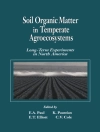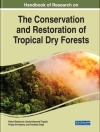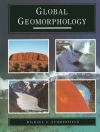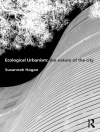This book presents the background and context of an urban health issue, research findings, and recommendations for policy/decision-makers and action-takers.
This book is a collection of policy briefs produced from research presented at the 16th Conference on Urban Health in Xiamen, China, during November 4–8, 2019, under the theme “People Oriented Urbanisation: Transforming Cities for Health and Well-Being, ” co-organized by the Urban Health and Wellbeing (UHWB) programme of the International Science Council (ISC), The 15th Annual Session of Global Forum on Human Settlements in Shenzhen, China, during October 15–16, 2020, and the Chinese Academy of Sciences & Technology (CAST) International Conference on ‘Digital economy and green development’ held during November 2020.
The UHWB programme takes an interdisciplinary, cross-sectoral, and systemic view on issues of health and well-being in cities which include the urban economy and finance systems, education, employment, mobility and transport, food, energy and water resources, access to public services, urban planning, public spaces and urban green, as well as social inclusion. Contributions to this book have been made by scientists from multidisciplinary research fields.
The policy briefs in this book provide an interdisciplinary and cross-sectoral perspective on urban health and human well-being issues, primarily food security, urban infrastructure, public services, traffic and transportation, smart city building, urban health and safety, social cohesion sustainable development policies, and urban planning. In some case, it informs about urban health issues in different regions of the world, the current status, and key insights into addressing related issues, with emphasis on factual cases in the current COVID-19 pandemic.
The book is intended for citizens and political decision-makers, who are interested in systems perspectives on urban health and well-being, examples ofhow to deal with the increasing complexity of cities and the accompanying environmental and social impacts of increasing urbanization. Furthermore, it hopes to inspire decision-makers to facilitate finding solutions, in order to reach the goal of advancing global urban health and well-being.Cuprins
A smart health approach in cities.- Why health in cities matter: A whole systems approach in practice.- Co-creating FAIR data for healthy and resilient urban development.- Working towards more inclusive inner-city environments for people with disability.- Who are the poor, and how do they survive in an emerging city of developing countries.- Global assessments of sexual and reproductive health needs of rural-urban migrants in an urbanizing world.- Sound alliance: a participatory management and systems approach to co-create healthy urban soundscapes and procure Sustainable Development Goals and the New Urban Agenda.- COVID-19 and Urban Food System.- Developing a Digital Learning Platform for Adolescents in Vulnerable Communities in The City of Medellin, Colombia.- A Tool to Tackle Covid-19 Confinement Challenges.- Partial System Analysis of Traffic Noise Reduction in Tarik Al Jadidah, Beirut, Lebanon.- Managing urban green spaces for biodiversity and health: systems thinking from a regional Australian city on synergies, trade-offs, and enablers.- Interdisciplinary participative platforms to ensure the wellbeing of African city dwellers.- Access to contraceptives among urban residents living in informal settlements in Kira Municipality, Uganda.- Effective execution of provisions under Cigarettes and Other Tobacco Products Act (COTPA) through multi sectoral approach to reduce use of tobacco in Indore city, India.- Operationalizing the One Health Approach in a Context of Urban Transformations.
Despre autor
Dr. Franz W. Gatzweiler is Professor at the Institute of Urban Environment, Chinese Academy of Sciences, and Executive Director of the International Council for Science’s global programme on “Urban Health and Wellbeing: a Systems Approach.” He studied Agricultural Economics at the University of Bonn and the Humboldt University of Berlin in Germany. His doctorate research (summa cum laude) was on the “Nature of Economic Value and the Value of Nature.” Now his interests focus on the science of complex systems, urban, and planetary health. He received stipends and research grants from various German and international research foundations. In 2015, he earned a habilitation (fakultas docendi) for independent teaching and research in the field of resource economics from the Humboldt University of Berlin. Before joining the Chinese Academy of Sciences in October 2014, he was Senior Researcher at the Center of Development Research (ZEF), University of Bonn in Germany.












